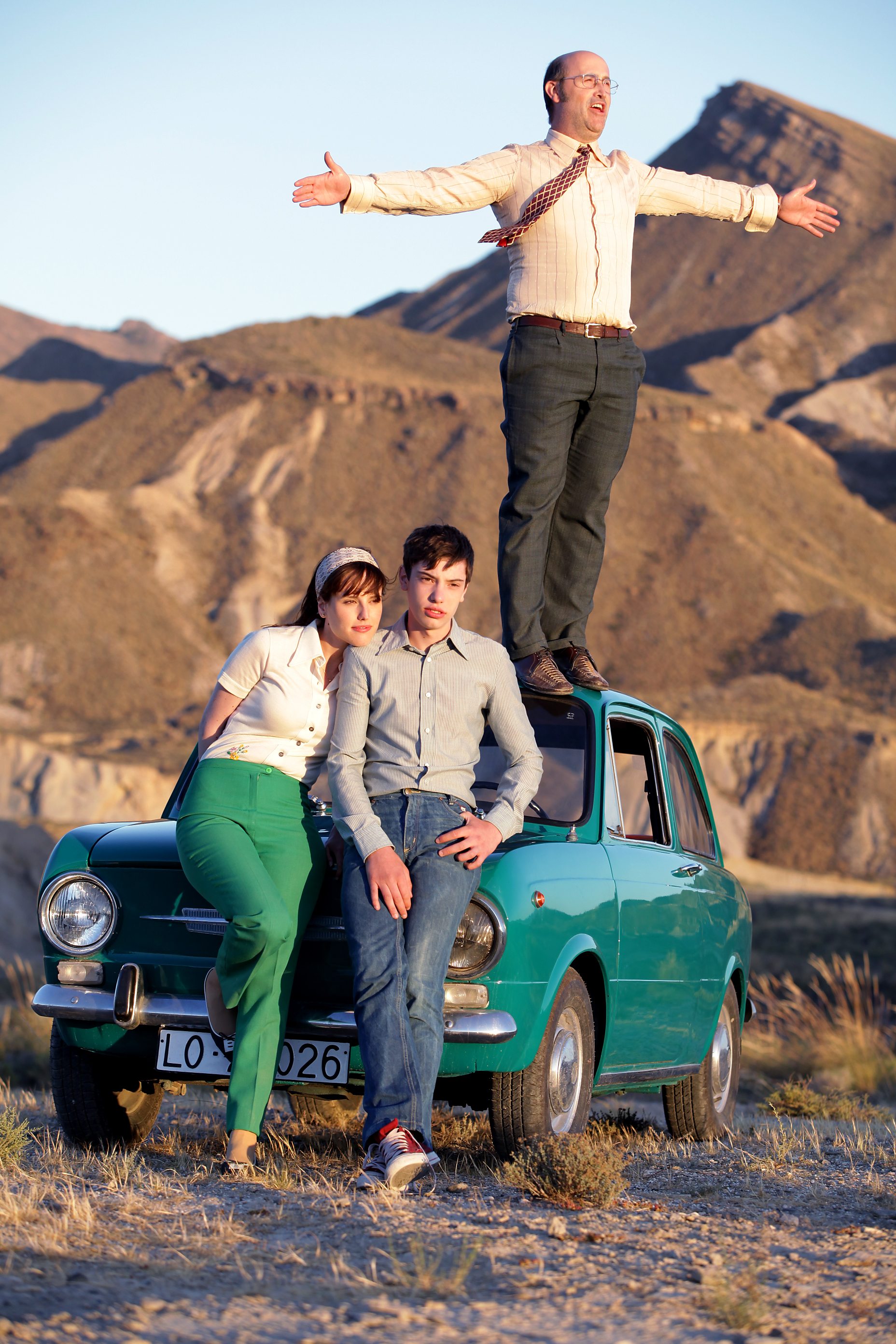Spain only seems to export its most beautiful movie stars to us, often via Almodovar: Antonio Banderas, Penelope Cruz, Javier Bardem, Paz Vega, etc. But then there’s the short, chubby, balding Javier Camara, who is so much more worthy of your adoration. He was the chatty nurse in Talk to Her, the nelly flight attendant in I’m So Excited, a kindly drag-queen mentor in Bad Education. And whatever the role, he communicates such a direct, warm avidity for life, an obliviousness to what others think (or judge), that you feel his arms extending off the screen to embrace you. Beautiful people don’t care about you, don’t feel your pain or isolation, but his buoyant, nerdy schoolteacher Antonio knows exactly what you’re feeling. He may not know how to express those feelings himself, but he has some help in that department: John Lennon, his hero, his idol, his god.
In 1966 Madrid, Antonio teaches his pupils English by having them recite the lyrics to “Help.” He gently chides and corrects their efforts; he confiscates the boys’ Playboy pinups (those tan lines!); and he has a secret plan for the weekend, perhaps the culmination of his life’s work. As actually happened, documented by newsreels, Lennon was then filming How I Won the War in southeast Spain. The bachelor—of course—Antonio packs up his green Fiat and heads toward the coast. En route he picks up 16-year-old runaway Juanjo (Francesc Colomer), who refuses to cut his Beatle bangs, and the slightly older Belen (Natalia de Molina), aglow with an unwanted pregnancy.
Please do not expect a lot of complications or darkness here. Antonio is emphatically a good man, who can’t resist lecturing his hitchhiking students for every kilometer of their journey. (They roll their eyes but listen politely.) The Andalusian locals they meet are mostly decent folk (jokes about dialect and region you can ignore). And when Antonio finally attempts to crash the film set, protected by armed guards, well… that is not a moment I am going to spoil.
This movie was written and directed by David Trueba, born three years after the events in question. It’s not a baby-boomer memory piece, but actually an evocation of the twilight years of Franco’s brutally repressive regime—its cracks beginning to show, Almodovar and other cultural bomb-throwers just around the corner. But the film is equally comedy and critique. When Juanjo confesses he might actually prefer the Kinks or the Stones, Antonio screams, “Get out of the car!” He’s serious, and his two stunned passengers are left stranded by the road. But then, wait for it, the teacher has another lesson planned. Runs Fri., Aug. 8–Thurs., Aug. 14 at SIFF Film Center. Not rated. 108 minutes.
bmiller@seattleweekly.com








